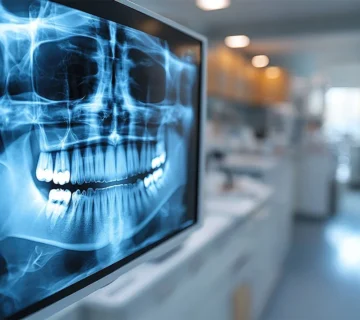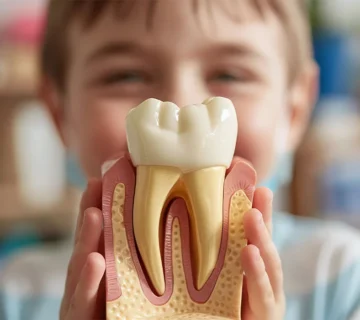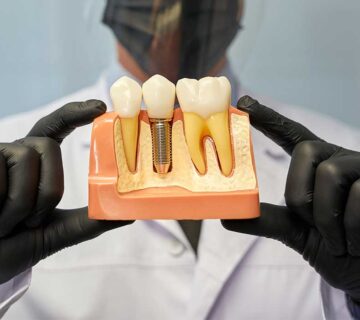Root canal treatment can be done for most teeth, but in some cases, root canal treatment may not be performed or it may not be possible to save the tooth. In order for root canal treatment to be performed, the tooth must meet certain conditions. Here are some situations where root canal treatment cannot be performed:
1. Complete Fracture or Disintegration of the Tooth
If a tooth is broken down to its root or has a very large fragmentation, root canal treatment may not be possible. Because for root canal treatment, a part of the tooth must remain healthy and have a structure that can be treated. A completely broken tooth may be impossible to treat, in which case the tooth may need to be extracted.
2. Completely Rotten Roots
Root canal treatment aims to treat the nerves and vessels inside the tooth. However, if the roots of the tooth are completely decayed or the decay is so advanced that the root structure is destroyed, root canal treatment cannot be performed. In this case, the entire tooth may be infected and the tooth may need to be extracted for treatment.
3. The Tooth is Completely Decayed and the Roots are Damaged
Even if the upper part of the tooth is very decayed, root canal treatment can be performed. However, if the root structure is damaged and the decay extends to the root, root canal treatment becomes difficult. If the decay affects the roots and completely destroys the tooth, root canal treatment may not be possible.
4. Tooth Roots Are Too Short or Have Insufficient Root Structure
The roots of the tooth may be too short or inadequately structured. For root canal treatment, the roots of the tooth must be long and strong enough. If the root structure is too weak or underdeveloped, it may prevent the root canal treatment from being successful. Root canal treatment can sometimes be ineffective, especially in short-rooted teeth such as milk teeth.
5. Root Tip Infection (Apical Lesion)
If there is a serious apical lesion or infection at the root end of the tooth and this infection is too advanced to be treated, root canal treatment may fail. In this case, additional surgical procedures may be required to save the tooth or tooth extraction may be recommended.
6. Too Closed or Jammed Channel
If the root canal of the tooth is very narrow or closed, root canal treatment becomes difficult. The root canals may be too narrow or stuck, preventing the treatment from being successful. However, although narrow canals can be intervened with advanced technology and various tools, root canal treatment may not be possible in some teeth.
7. Excessive tooth mobility
If the tooth is moving too much (for example, if the tooth is loosened due to advanced periodontal disease), root canal treatment is less likely to be successful. In this case, the connective tissue of the tooth may have weakened and lost stability, making it resistant to treatment.
8. Cancerous Tooth or Oral Cancer
If there is cancer or tumor in the mouth, tooth or surrounding tissues, root canal treatment is usually not applied. In this case, the treatment approach must be compatible with cancer treatment and the tooth may need to be extracted.
9. The Tooth Is Too Old or Decayed
Sometimes, in very old teeth that have not been treated for a long time, the decay may be so deep that even root canal treatment may not be enough to save the tooth. In such cases, the root structure of the tooth may be damaged and the treatment may not yield results.
Situations Where Root Canal Treatment Can Be Performed
Root canal treatment can usually be done in the following cases:
- Deep bruises and bruises that cause pain.
- Pulp (nerve) infection occurs as a result of tooth fracture.
- To prevent the tooth from becoming infected after decay or trauma and to prevent the spread of this infection.
- Removal of nerves in painful teeth and protection of the tooth.
Root canal treatment can be applied to most teeth, but factors such as the structure of the tooth, the level of infection, the condition of the roots and general health determine whether the treatment can be applied. If you have a tooth that cannot be treated for a root canal, the dentist will usually recommend alternative treatment options, such as tooth extraction or implant placement. If you encounter such situations, it is important to make a detailed evaluation with a dentist and determine the most appropriate treatment method.



















